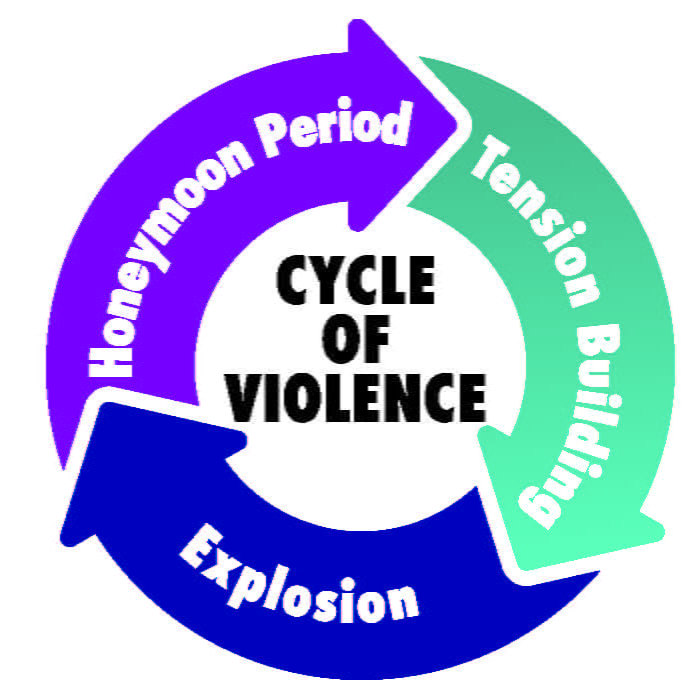Violence Prevention and Risk Reduction
Physical and sexual violence does not discriminate, and it can affect students, faculty, and staff right here within the Drexel University community. While violence can present itself in the form of an attack by a stranger, most acts of violence are committed by people we know and all too often by those who are closest to us. It is important to learn the warning signs of relationship abuse so that you can recognize situations and relationships that may have become physically or psychologically dangerous to yourself and others. On this page you will find a number of warning signs of relationship abuse that you should be aware of. While it is vital to be cognizant of these signs, it is most important to realize that violence is not your fault, and that love is respect.
|
|
|
|
If you are unsure if you are in an abusive relationship, and would like to talk to someone about your experience, you can call the Drexel University Counseling Center at 215.895.1415 or after hours at 215.416.3337. You can also call the confidential Philadelphia Domestic Violence Hotline at 1.866.723.3014. In addition, you can contact EIC for more information.
To see more warning signs of relationship abuse in action, check out the One Love Foundation's "Couplets" videos highlighting unhealthy relationship behaviors.
The One Love Foundation teaches to be on the lookout for these 8 warning signs:
| Intensity | Obsession | Isolation | Disrespect |
| Guilt | Control | Anger | Putdowns |
If you see three or more of these warning signs in your relationship or a friend’s, don’t be afraid to speak up and say #thatsnotlove .
PREVENTION TIPS
Survivors are never at fault for the abuse they endure. However, there are behaviors that aid in risk reduction and increase safety. The best way to prevent violence is to stop it before it starts, if possible. Creating boundaries and clear communication are the best measures for preventing abuse.
|
|
|
|

CYCLE OF ABUSE
The cycle of abuse diagram provides a visual to explain the stages that usually occur during an abusive relationship. The phases represent what happens before, during and after abuse takes place. Partners may go through the cycle of abuse countless times throughout a relationship. The stages are marked by the presence or lack of abuse, breakdown in communication, the abuser’s anger and the victim’s response.
Although abuse is typically not constant throughout a relationship, the honeymoon phase and tension building phase usually shorten over time, thereby increasing the frequency of abusive episodes. The cycle will not stop unless the victim chooses to end the relationship or there is an intervention. See the resources list at the bottom of the page if you need help ending an abusive relationship.
CYCLE OF ABUSE – The Intersection of Communication, Abuse, and Response
|
|
|
DREXEL RESOURCES
All Drexel University Community members are encouraged to report incidents that may violate the sexual harassment and sexual misconduct policy. Through reporting, there are opportunities to file a complaint, receive free referrals, and/or be provided with accommodations. Even if members of the Drexel community decide not to pursue a criminal or Drexel internal conduct complaint, resources are still available to provide support and to mitigate the impact of an incident.
For more information about Drexel resources, visit: the Title IX resources page.
LOCAL RESOURCES
|
Drexel Counseling Center
University City Campus
3210 Chestnut St.
201 Creese Student Center
Philadelphia, PA 19104
215.895.1415
|
Philadelphia Center Against Sexual Violence 1617 John F Kennedy Blvd #800 Philadelphia, PA 19103 215.985.3333 | Women Against Abuse Land Title Building Management 100 S Broad St #1341 Philadelphia, PA 19110 215.386.1280 | Philadelphia Sexual Assault Response Center 300 E. Hunting Park Avenue Philadelphia, PA 19124 Emergencies: 215.425.1625 Non-emergencies: 215.800.1589 |
NATIONAL RESOURCES
| National Domestic Violence Hotline 1.800.799.SAFE (7233) (Confidential and free hotline available 24 hours a day, 7 days a week) |
National Sexual Assault Hotline 1.800.656.HOPE (4673) (Confidential and free hotline available 24 hours a day, 7 days a week) |
National Teen Dating Abuse Helpline 1.866.331.9474 or text LOVEIS to 22522 (Confidential and free hotline available 24 hours a day, 7 days a week) |
References